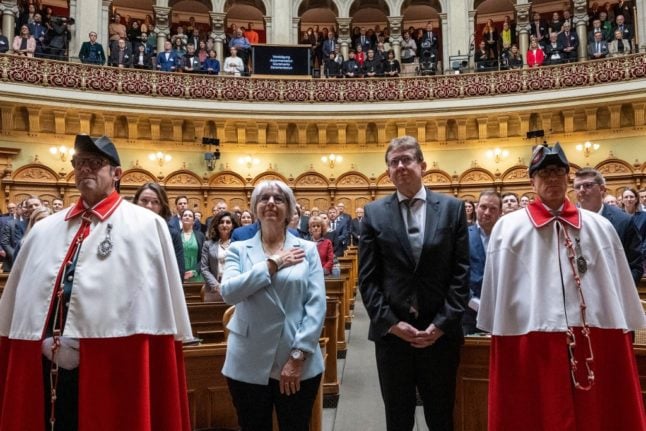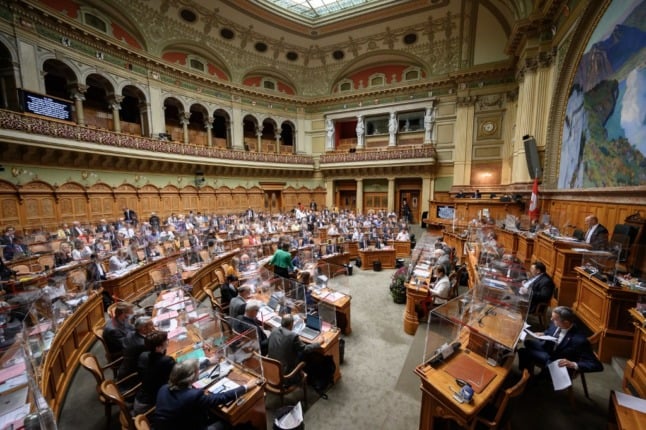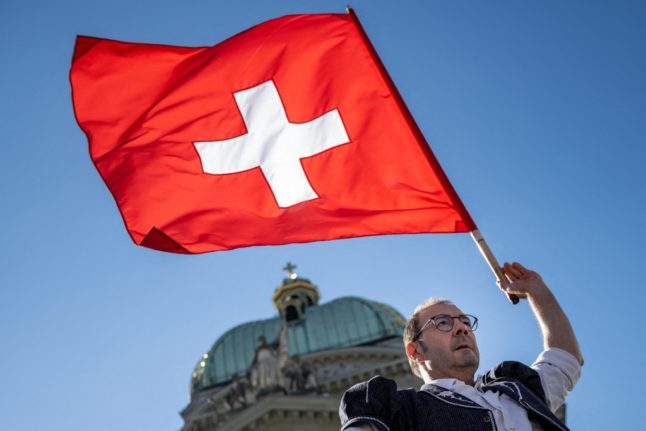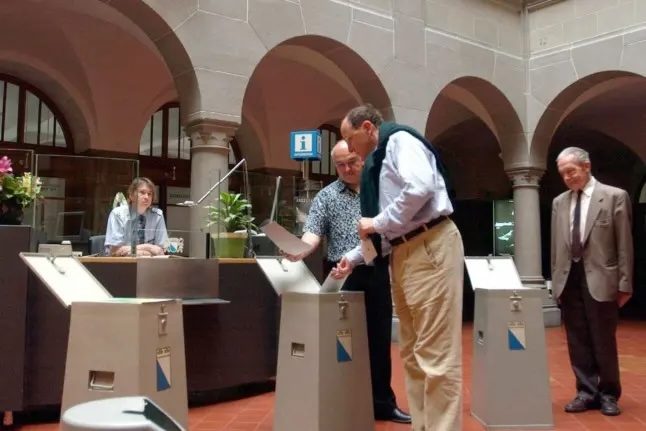In many ways, Switzerland’s political system is different from that in most other countries, and it may become confusing to newcomers (or even those who have been here for a while).
For instance, foreigners in Switzerland probably became more familiar with some politicians during the Covid pandemic, as their (often masked) faces were frequently in the news.
Also the term “Federal Council” has often been mentioned in the media during the health crisis.
You may also be perplexed by the fact that the president’s position changes on a yearly basis – and is not related to elections. It’s currently Ignazio Cassis, and will change to Alain Berset at the start of next year.
This is just one aspect of Swiss politics that is unique in Europe and possibly elsewhere as well.
That’s because unlike most other nations, Switzerland doesn’t have a single president or a prime minister. Instead, it has the executive branch, or Federal Council, whose seven members serve as the collective head of state.
READ MORE: Swiss parliament elects new ministers to Federal Council
They represent the four major parties and political leanings in the parliament — the Swiss People’s Party (SVP) to the right, Social Democrats to the left, as well as The Center and The Liberals in the middle.

The number of seats each party holds corresponds to the number of seats they have in the parliament.
Each federal councillor also heads a government department.
Despite undoubtedly having a divergence of opinions due to their different party affiliations, all the members of the Federal Council make the decisions jointly, based on the principle of collegiality and consensus — that is, what is best for Switzerland and not necessarily for their own parties.
If there is a disagreement among the councillors in private, we, the public, are not privy to it, as they are mandated to present a united front.
The Federal Council is elected by the parliament every four years; parliament members, on the other hand (both the lower house, the National Council, and the upper chamber, the Council of States), are elected by the people.

And what about the president?
The President of Switzerland is elected for a one-year term by the parliament. However, he or she is not the head of the government, has no special power, and their role is to chair the Federal Council meetings, mediate in the case of disputes, and represent Switzerland abroad.
Since the presidency changes in a blink of an eye, it is not surprising many Swiss don’t even know who their president is in a given year.
Who decides what laws are implemented in the country — the Federal Council or the the parliament?
Neither.
And this is where the Swiss system is unique, as in Switzerland all the political power belongs to the people.
Unlike other nations, where elected officials make decisions on behalf of their constituents, in Switzerland a centuries-old tradition of direct democracy gives people — rather than lawmakers — the power to shape local and national policies.
No legislation can be enacted here until citizens approve it in a referendum. In this way, they can have a say in a political process that impacts their lives.
The Covid-19 law for example, was initially approved by voters in 2021.
READ MORE: Swiss voters back Covid pass law
People can also create their own laws (within reason, of course). Any group or a citizen over over the age of 18 can launch an initiative by collecting 100,000 signatures within 18 months. Petitions must conform with legal requirements— anyone who signs it must be eligible to vote in Switzerland and provide their address for identification purposes.
Sunday’s vote was an example of such an initiative. A group called Friends of the Constitution launched an initiative to repeal a revision of the Covid law that pertains specifically to the Covid certificate. They were, however, defeated.
But if an initiative is approved by the voters, the Federal Council must figure out a way to implement it.
The Swiss typically vote in referendums four times a year — more than any other nation.
However, if a piece of legislation that the parliament and the Federal Council want to enact is rejected by voters, the government has no choice but accept the defeat.
They have to adhere to the words an American politician famously uttered after he lost an election in the 1960s: “The people have spoken — the bastards”.



 Please whitelist us to continue reading.
Please whitelist us to continue reading.
Switerland has a very good electoral system, one of the best in Europe.